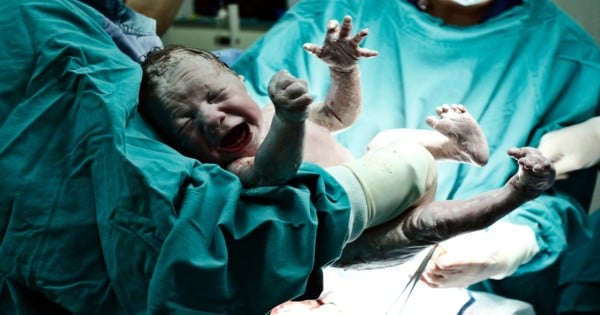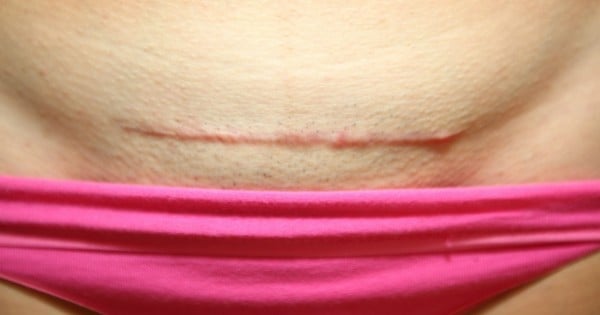
Why is it we think of vaginal births as the ideal way to give birth?
Why do we just assume vaginal birth is necessarily safer?
Why aren’t women told of the risks and possible compilations of vaginal births including tearing, haemorrhage and incontinence?
Why do we think vaginal births are the best thing for mother and baby?

Why do we assume vaginal birth is necessarily safer? Image via IStock.
That’s the subject raised by researcher Mairead Black from the University of Aberdeen.
Writing for The Conversation Ms Black says that hospitals still treat vaginal birth as the default birth mode for most women, despite its risks.



Top Comments
For me, my order of preferences was (1) non-medicated vaginal delivery (but with option of epidural if needed). (2) elective c-section (3) emergency c-section (4) use of forceps or a train wreck vaginal delivery.
So I wanted (1) and did every thing I could to get there (including walking almost 10km a day, yoga for spinning babies, pain management techniques and maybe a gazillion squats!)...but after 48hours of being mechanically induced at 2 weeks past my due date with zero contractions and cervix and baby still tight and high, I made the informed choice to proceed with an elective c-section rather than with a drug induced labor which meant my risks of emergency c-section or assisted delivery was higher. I feel very lucky that I was so well informed, partly due to my OB and partly due to my wonderful pregnancy group.
You simply can't generalise.
A woman who labours relatively easily will have a completely different birth experience to a woman who has lengthy and complicated labours resulting in painful and invasive procedures to get the baby out.
My sister in law pushed out 3 babies, all over 9 pounds, in under 3 hours each, no pain relief and no stitches required. So her experience or the experiences of women like her as great for them but it's very import to remember that these women are the lucky ones and not the norm.
It's not like that for most women. In fact most of my friends were so traumatised by their first labour experience they all opted for elective c-sections for their next children.
And that's the thing. I know two women who popped their babies out the old-fashioned way in less than two hours. The worst they suffered was "a bit of a headache". Two Panadol and they were wanting to go home.
Every c-sections is surgical and every c-section carries standard surgical risks, both short and long-term.